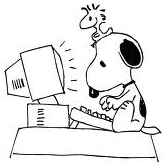Showing posts with label YouTube. Show all posts
Showing posts with label YouTube. Show all posts
Friday, 29 October 2010
Dis, internet c’est grand comment ?
Labels:
culture,
data visualization,
Facebook,
internet,
Média Sociaux,
technologie,
twitter,
web 2.0,
YouTube
Monday, 25 October 2010
Lady Gaga, 1 milliard de vues sur YouTube
Labels:
culture,
Média Sociaux,
news,
Réseaux Sociaux,
twitter,
web 2.0,
YouTube
Saturday, 23 October 2010
Madame Béthencourt est-elle sur Facebook ?
Labels:
culture,
Facebook,
Linkedin,
Média Sociaux,
news,
Réseaux Sociaux,
web 2.0,
YouTube
Wednesday, 3 February 2010
Gov 2.0: France 1 – US 0

Everybody agrees that Barack Obama was the first politic figure to (seem to) use web 2.0 during the presidential campaign as a way to enroll citizens in his campaign and leverage the grass root movement.
- And by the way, Barack Obama wasn't the only winner in November 2008 presidential election. Thomas Gensemer, whose company Blue State Digital managed Obama's slick online campaign, built his website my.barackobama.com, recruited 13.5 million supporters and raised $500m for the Obama campaign, is also doing very nicely out of the victory. He then moved on to the UK to help Gordon Brown and it's no surprise that the UK Prime Minister party is doing a great job at leveraging new technologies. -
To come back to Barack Obama, he was also the first one to create a position of Chief Technology Officer at the White Office. And he just innovated again when not only had he his State of the Union broadcasted live on YouTube but more interestingly in answering live, in real time, questions from citizens on YouTube. The questions were selected by YouTube staff and they swear that the President didn't know them before hand.
The interest of the exercise is not so much in getting questions directly from citizens: Clinton had done it on TV with MTV a few years ago.
No, what's interesting is the "real time" approach. The "live" factor. It creates a "real life" feeling. No security net. However, if web 2.0 is about creating a conversation, for once the French President maybe ahead in a twisted way.
Last week Sarkosy answered questions from a few French citizens, live, on a TV set, with the citizens in question being there and actually dialoguing with them. So from a technology point of view, nop, it's not web 2.0. It's TV 2.0. But neither is it when Obama just broadcasts his answers on the net, without opening the floor to real conversation. There is nothing 2.0 about that.
Without getting into politics, it's quite representative of Obama's approach. He seems to be cool and use web 2.0 to be close to his citizens, but it's all smokes and mirrors. He only broadcasts a controlled environment interview on the web instead of the cable. But then again nothing surprising from a man who does 90% of his speeches with teleprompters... even when he visits a 5th graders' classroom!
On the other hand, French politic actors are still figuring out how to use the technology. We had some terrible websites or FaceBook pages (Gensemer we need you!). But they get the 2.0 aspect. They do Pizza 2.0 parties where public elected figures invite citizens to talk with them.
Just this morning, they were on Twitter to comment on an interview of the Prime Minister on radio while it was taking place on the air. We are one step from forcing a debate on a single interviewee who no doubt will want to be able to address these comments from his adversaries.
Now that's interesting.
So in conclusion, the most important in gov 2.0 is not the use of the technology to use internet to broadcast staged event, it's the 2.0 dimension of creating a dialogue.
Labels:
culture,
Gov 2.0,
In English,
technologie,
web 2.0,
YouTube
Thursday, 17 December 2009
The power of Social Media and UGC – Success stories
YouTube is probably the most famous example of the network effect power. It benefits from 2 closely interdependent factors: 1- the first mover advantage that allowed the company to 2- reach a critical mass of users. The paradox is that it's win-win situation: this critical mass gives as much power to YouTube than it does to the crowd. Users flock to YouTube because they trust their network, or at large the crowd, to find the best videos that are out there. They also find first hand information they wouldn't find somewhere else: it' the social journalism aspect. It's a snowball thing. And then great success stories happen with unknown people uploading a little video reaching fame and production deals. And that's the cherry top: who doesn't like a funny video or a great story where a John Smith gets a break.
Before telling you of 2 such stories reported by the BBC, I have to add that there is more than that to YouTube. First there is amazingly great content out there: I am thinking for instance about the TEDTalks videos. Second, there is so much content on YouTube that can you find tutorials about anything. People are stating to use YT as a Search Engine and that's where the Google/YT wedding makes sense. Search and content organization. Third, it's social and convivial, and a great sharing tool. Fourth, it's still under used by companies to reach their customers.
In conclusion, as promised, 2 success stories reported by the BBC.
- YouTube video leads to Hollywood contract
- Web makes Tajik migrant a star
Subscribe to:
Posts (Atom)




